An overview of marketing project managers
Marketing project managers are an uncanny mix between artists and scientists.
They test hypotheses, conduct experiments, design world-class posters, and obsess over which words to use. They measure everything that can be measured while they trust no number with their lives.
Project management in marketing requires people with a special and diverse set of skills to succeed.
In this article, we’ll discuss the following topics:
- What is marketing project management
- What are the responsibilities of a Marketing Project Manager
- What are the best marketing project management tips
- What is the conclusion of a marketing management project
What is marketing project management
It is a specialization of project management. Its processes around project integration management are tailored to marketing objectives and requirements. Projects vary tremendously from business to business and industry to industry.
It’s a unique kind of project management because it’s heavily influenced by both data and creativity.

What are the responsibilities of a Marketing Project Manager
A project manager in marketing is responsible for managing a specific marketing campaign (duh!). Depending on the company's needs, it could include developing and running the marketing strategy from start to finish.
Here are some of the critical responsibilities on their shoulder:
Conduct Market and Demand Analysis
This could be a project on its own.
It’s where all marketing kicks off. It’s the foundation of every effective marketing strategy and activity. It informs decisions on every level of the strategy.
Without market and demand analysis, you’re shooting in the dark. At the very least, the marketing project manager has a firm grasp of their target audience profile.
Create and Manage the Budget and the Timeline
Marketing project budget and timeline are the two decisive factors of a marketing campaign’s success.
Even the most creative ads won’t fulfil their reach potential if they have too low of a funding ceiling. On the other hand, an unconstrained budget might lead to cash-burning tactics with very low ROI.
Missing deadlines is never a good thing. Imagine building immense hype, teasing a marketing event, and then failing to deliver an impressive experience because your team didn’t manage its timeline correctly.
It’s the marketing project manager’s responsibility to anticipate and proactively prevent these situations.
Manage the Content Calendar
Content is the product of marketing.
A well-choreographed marketing strategy is a multimedia performance that hits its audience with unsettling accuracy.
The best marketing campaigns have been planned well in advance of their execution and aim at maximizing the collaboration of all the utilized media. To put it simply:
Timing is a win-or-bust marketing factor.
On all kinds of content. Thus, developing and managing a content calendar is not a simple matter. A few key aspects must be clarified from the beginning, like its objective, the core message, the channels, the messaging adjustments on each channel, the frequency, and many others.
Marketing is awfully contextual.
Manage Creatives
A marketing project manager is a creative project manager.
That entails that their marketing teams are teams of creatives. So, apart from leadership skills, marketing project managers should have a deep understanding of the creative process and proficiency in project management tools.

What are the best marketing project management tips
Master the stakeholder management game
The most troublesome challenge of project management is getting the right information to the right people at the right time.
Marketing magnifies that challenge. Because of the experimental nature of the craft, its artistic uncertainty, and the high expectations around it, communication is bumpy.
Coordinating and passing around crucial information about the campaign to every team member is not as easy as it sounds. And giving concise and clear reports on the progress and blockers of the team to Supervisors takes a lot of time and energy.
Automating the process with KPI reporting templates creates much-needed transparency and clarity while spending the least time and energy.
Educate your Supervisors
Marketing isn’t like most industries.
It has some universally applied principles. However, what works for one business doesn’t necessarily work for another. And effective tactics stop working over time.
As a marketer, a marketing project manager ought to educate the Supervisors of the project. Regardless of whether they are clients or chief officers.
People look for immediate results and quick solutions to their problems. Sometimes they treat marketing precisely like that. It’s your duty as a marketer to teach the ways of the industry and debunk the myths of “on-demand virality” and “predictions with absolute certainty”.
Specialize
Marketing is like every other industry.
Specialization matters and is highly impactful. Maybe even more than in other industries due to marketing’s highly contextual nature. Here are two examples of specialized marketing project managers:
Digital marketing project manager
They specialize in online marketing strategies, campaigns, and tactics. Apart from all the other skills we have mentioned, they are skilled in analytics applications and attribution software. Basically, they command tools to deepen their understanding of their online audience and their website's visitors.
Direct marketing project manager
Direct marketing is another form of marketing. Its goal is to develop meaningful relationships with prospects using direct and personalized communication channels.
It intersects a lot with digital marketing, but its main distinction is that it eliminates any middleman between the business and its prospect.
What is the conclusion of a marketing management project
Marketing is neither an art nor a science.
It’s both.
So, the outcome of a marketing project is dependent on specific criteria. It’s a destructive mistake to try and determine them at the end of the project. Most marketing project managers learn this the hard way.
Don’t try to convince people about the effectiveness of a campaign once it’s already on the air. For all parties and stakeholders involved, clarity and transparency at the start of the project saves everybody from headaches, heartaches, and burned pockets.
So, make sure you set clear expectations from the beginning. Then, the conclusion of your marketing project will basically write itself.





.png)
.png)
.png)
.png)



